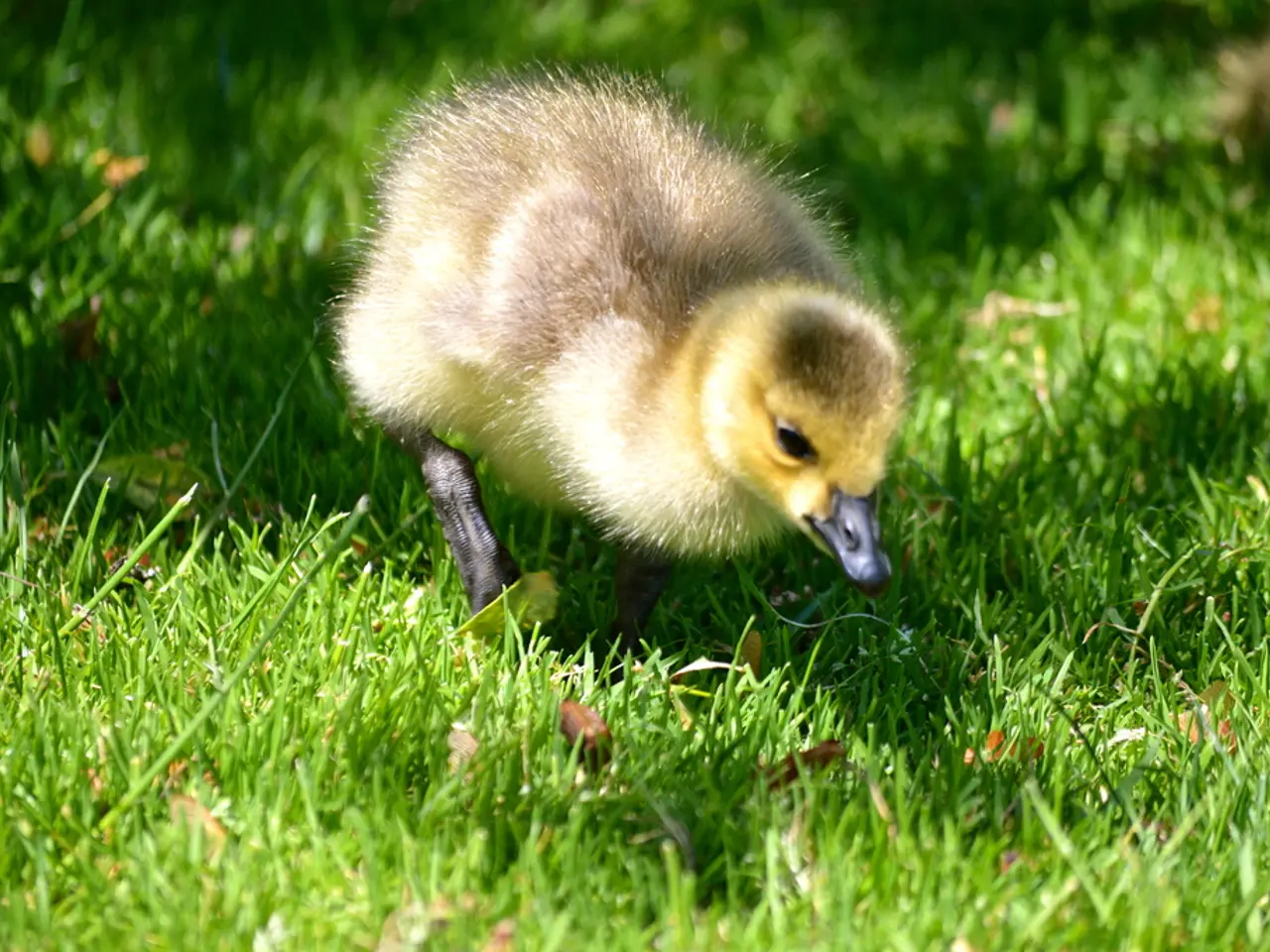Tragic Conclusion
In a small, close-knit community, an unexpected event unfolded that would not only bring neighbours closer but also shed light on the importance of community cooperation and conservation. The arrival of a family of ducks in a local pond sparked a series of events that would challenge the community's self-interest and ultimately lead to a greater understanding of the common good.
Lutz Mehlhorn, a resident, found himself taking on the daily feeding and fresh water supply for the ducks. The emotional response in the community was palpable when the ducklings were born, with Mehlhorn describing it as a magical moment. The ducks' stay was initially controversial, but a consensus was reached for them to remain, with some residents taking steps to provide better living conditions.
Mehlhorn learned more about his long-time neighbours through the duck incident. The presence of the ducks led to new quality conversations among neighbours, fostering a sense of community that had been missing. The duck community was planning the ducks' flight path after several weeks of careful rearing.
However, the neighbours' plans for the ducks were abruptly halted by an unnamed individual. Mehlhorn found the remains of a hygiene cleaner, possibly used to remove duck dirt, suggesting that the individual was not adhering to the community's dialogue. Mehlhorn draws a connection between the treatment of the ducks and the individual's disregard for the common good.
Mehlhorn implies that such individuals may negatively impact people, society, and nature in other areas. He questions how individuals who act selfishly towards nature's minor concessions will handle major challenges. At 3 pm last Friday, Mehlhorn saw the ducks peacefully in the sun, but by 6 pm feeding time, they were "removed" from their living area. The water tank, chairs, and plot for rearing the ducks were still in place.
The magical garden appeared dull and lifeless without the presence of the ducks. The incident serves as a reminder of the importance of community cooperation and consideration for nature despite individual self-interest. To promote such cooperation, it is essential to foster local participation, shared decision-making, and trust.
Promoting community cooperation in the face of self-interest requires structured co-management, inclusive multi-stakeholder partnerships, trust-building through experiential learning, and responsive, locally-grounded engagement that aligns individual actions with ecological and social benefits. These principles echo the lessons from situations like the duck incident, where cooperation and consideration only emerge through deliberate community agency and shared responsibility.
References:
[1] Chhatre, A., & Mwangi, S. (2013). Community-based conservation: A review of the evidence. Environmental Conservation, 40(4), 248-259.
[2] Cinner, J. E., Folke, C., & McClanahan, T. R. (2009). Reef fishes in human hands: lessons from the science of community-based fisheries management. Trends in Ecology & Evolution, 24(11), 578-585.
[3] Cumming, G. S., & Norli, B. (2008). The SharedCropping game: a tool for exploring cooperation and conflict in common-pool resource management. Ecological Economics, 66(3), 515-525.
[4] McKean, C., & Mwangi, S. (2010). The political economy of community-based natural resource management: lessons from Kenya. Environmental Conservation, 37(3), 235-243.
In the course of the duck incident, Lutz Mehlhorn found himself not only caring for the ducks but also learning about his neighbors and their lifestyle. The home-and-garden area, filled with the life and charm of the ducks, seemed less vibrant without them, highlighting the role of pets in enhancing our living spaces. The community's cooperation on the ducks' care and rearing emphasized the potential positive impact of pets in fostering a sense of community and shared responsibility.




